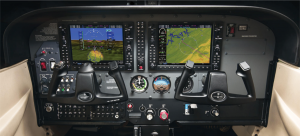Commercial Pilot Requirements Part 61
When your ambitions direct you toward becoming a commercial pilot as a non-traditional student, a Part 61 course designed with you in mind will help you meet the requirements of training. Paragon Flight has authorization of the FAA and operates under the regulations of FAR Parts 61 and 141.
 In order to accept payment as a professional pilot, you must have a Commercial Pilot License (CPL). To advance to become an airline pilot, you’ll need to earn an Airline Transport Pilot (ATP) certificate and log 1,500 flight hours. A commercial license, however, is attainable with 250 flight hours with a Part 61 program or 190 with a Part 141 program.
In order to accept payment as a professional pilot, you must have a Commercial Pilot License (CPL). To advance to become an airline pilot, you’ll need to earn an Airline Transport Pilot (ATP) certificate and log 1,500 flight hours. A commercial license, however, is attainable with 250 flight hours with a Part 61 program or 190 with a Part 141 program.
Opportunities as a Professional Pilot
- Crop duster
- Pipeline patrol
- Powerline patrol
- Aerial surveys
- Air ambulance
- Skydive flights
- Banner towing
- Flight instructor
- Cargo pilot
- Charter pilot
- Private pilot
- Many more
Depending on the particular role as a pilot you seek, you’ll need further training.
For a fast pace toward your goal of becoming a commercially licensed pilot, consider the P3 Professional Pilot Program at Paragon Flight. With zero experience, you can reach your goals in fewer than 10 months! This specially designed program is meant to help fill the gaps in the occupational sector. The need for qualified pilots has risen dramatically, as have the salaries for these positions. Grab the opportunity if you meet the following qualifications to participate in the P3 Professional Pilot Program:
- 18 years old
- High school graduate or GED recipient (some college preferred)
- One personal character reference
- One professional character reference
- Clean Motor Vehicle Record (MVR)
- Clean criminal background check
- Pass a cognitive and behavioral assessment
- Clean FAA record with no incidents, accidents, or enforcement actions
- FAA 1st Class Medical Certificate
- Proficiently fluent and literate in the English language
- Full-time availability to participate in 4-5 practical flight sessions of training and 10-20 hours of ground training each week
- Established integrity, drive, and willingness to work hard
Why are the requirements so rigorous, you ask? The answer becomes clear when you consider the speed with which you’ll complete training.
0-10 WEEKS Private Pilot License (PPL) – foundational phase for all future aviation education, considered the most important as it builds best practices and good habits to continue learning throughout one’s career.
11-18 WEEKS Instrument Flight Rating (IFR) – second phase that teaches pilots how to use communication and navigation equipment and allows them to fly in new conditions.
19-30 WEEKS Commercial License, Single Engine & Multi Engine (CSEL & CMEL) – this specific phase prepares participants to pass the knowledge based tests and checkrides to perform as a professional pilot of either single-engine or multi-engine aircraft.
31-38 WEEKS Certified Flight Instructor (CFI) – the final phase of the program teaches commercial pilots how to share their love of flight with others. The role will allow you to enter the profession, earn a living, improve your skills, and log the flight hours you’ll need to continue with career advancement.
Paying for Your Training
If the concept of the P3 Program, or any other customized course of flight training, piques your interest, but you’re unsure of how you could afford it, give us a call, or click here to contact us online. We have a long history of identifying the right resources for pilot-hopefuls and helping them secure them.
Meet all of the commercial pilot requirements with a Part 61 program designed with you in mind here at Paragon Flight at our location in Fort Myers [(239) 274-3170] or Punta Gorda [(949) 336-7494].
